Mark Anthony Neal's Blog, page 529
March 13, 2017
Quantifying Hate: The Southern Poverty Law Center on the Rise of White Supremacist Organizations
 'The number of hate groups in the U.S. has risen for the second year in a row and is close to an all-time high according to the
Southern Poverty Law Center
, which conducts an annual census of such groups. There's been a huge spike in anti-Muslim hate groups. Guest host David Schanzer of the Triangle Center on Terrorism and Homeland Security talk with Heidi Beirich who leads the SPLC’s Intelligence Project, “one of the most respected anti-terror organizations in the world” and SPLC's president Richard Cohen.'
'The number of hate groups in the U.S. has risen for the second year in a row and is close to an all-time high according to the
Southern Poverty Law Center
, which conducts an annual census of such groups. There's been a huge spike in anti-Muslim hate groups. Guest host David Schanzer of the Triangle Center on Terrorism and Homeland Security talk with Heidi Beirich who leads the SPLC’s Intelligence Project, “one of the most respected anti-terror organizations in the world” and SPLC's president Richard Cohen.'
Published on March 13, 2017 05:57
March 11, 2017
50 Years Later Film on Algerian War of Independence Continues to Inspire Freedom Struggles
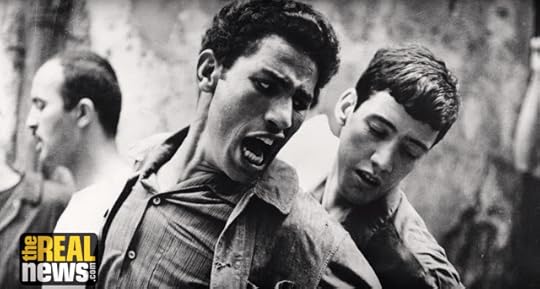 'Sohail Daulatzai, author of Fifty Years of The Battle of Algiers: Past as Prologue, sits down with former Black Panther Eddie Conway to discuss why the 1966 movie remains highly influential in the age of the war on terrorism and authoritarian capitalism.' -- +The Real News Network
'Sohail Daulatzai, author of Fifty Years of The Battle of Algiers: Past as Prologue, sits down with former Black Panther Eddie Conway to discuss why the 1966 movie remains highly influential in the age of the war on terrorism and authoritarian capitalism.' -- +The Real News Network
Published on March 11, 2017 15:13
Exploring America's Love Affair with Lethal Self-Defense
 'In Florida, the "Stand Your Ground" law allows people to use deadly force when they fear death or great bodily harm. It's one of many similar laws that exist in about half of U.S. states. It was the 2012 killing of black teen Trayvon Martin that brought these laws into the national spotlight, but their origins can be traced back to Colonial times. Harvard researcher Caroline Light says "Stand Your Ground" laws only truly serve the most privileged people in the America, while the most vulnerable members of our population — people of color, women, transgender people — are at the most risk of losing their lives or their freedom as a result of these laws. Light is the author of the book
Stand Your Ground: A History of America's Love Affair with Lethal Self-Defense
.' -- The Takeaway
'In Florida, the "Stand Your Ground" law allows people to use deadly force when they fear death or great bodily harm. It's one of many similar laws that exist in about half of U.S. states. It was the 2012 killing of black teen Trayvon Martin that brought these laws into the national spotlight, but their origins can be traced back to Colonial times. Harvard researcher Caroline Light says "Stand Your Ground" laws only truly serve the most privileged people in the America, while the most vulnerable members of our population — people of color, women, transgender people — are at the most risk of losing their lives or their freedom as a result of these laws. Light is the author of the book
Stand Your Ground: A History of America's Love Affair with Lethal Self-Defense
.' -- The Takeaway
Published on March 11, 2017 15:01
Salman Rushdie + Claudia Rankine on Creating Art in Times of Political Unrest
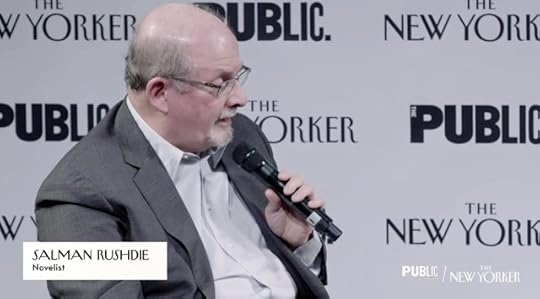 'In the first of an ongoing series of panel discussions called “Public Forum: A Well-Ordered Nation,” David Remnick speaks with Salman Rushdie, Tony Kushner, and Claudia Rankine about activism and art, writing political fiction, and finding humor in times of societal unease.' -- +The New Yorker
'In the first of an ongoing series of panel discussions called “Public Forum: A Well-Ordered Nation,” David Remnick speaks with Salman Rushdie, Tony Kushner, and Claudia Rankine about activism and art, writing political fiction, and finding humor in times of societal unease.' -- +The New Yorker
Published on March 11, 2017 14:37
Ben Vereen Discusses His Prolific Acting Career Including Roots, Star Trek and The Muppet Show
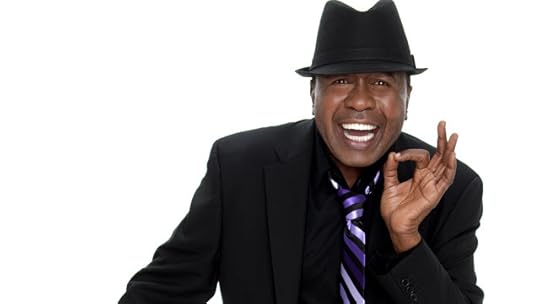 'Dominican University’s Annual Trustee Benefit Concert and Gala raises much-needed scholarship support, celebrates world-class artists, and honors those who champion the performing arts in the Chicago metropolitan area. This year they welcomed legendary performer Ben Vereen as their featured artist. Vocalo's Jill Hopkins spoke with the revered actor about his prolific career that has spanned decades.'
'Dominican University’s Annual Trustee Benefit Concert and Gala raises much-needed scholarship support, celebrates world-class artists, and honors those who champion the performing arts in the Chicago metropolitan area. This year they welcomed legendary performer Ben Vereen as their featured artist. Vocalo's Jill Hopkins spoke with the revered actor about his prolific career that has spanned decades.'
Published on March 11, 2017 14:29
CeCe Winans Discusses Her Album 'Let Them Fall In Love'
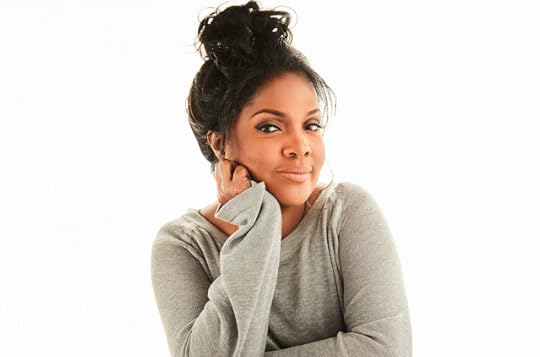 'Let Them Fall in Love, the latest album by CeCe Winans, is available now. Winans says that this album delightfully surprises her fan base. Reviews of the album include praises such as "masterpiece" and "a gospel heiress takes the genre to new heights." The Grammy Award-winning gospel/R&B star talks to +BUILD Series about what inspired the album.'
'Let Them Fall in Love, the latest album by CeCe Winans, is available now. Winans says that this album delightfully surprises her fan base. Reviews of the album include praises such as "masterpiece" and "a gospel heiress takes the genre to new heights." The Grammy Award-winning gospel/R&B star talks to +BUILD Series about what inspired the album.'
Published on March 11, 2017 14:21
March 10, 2017
If I Ever Lose This Heaven: The Genius of Leon Ware-- a Playlist
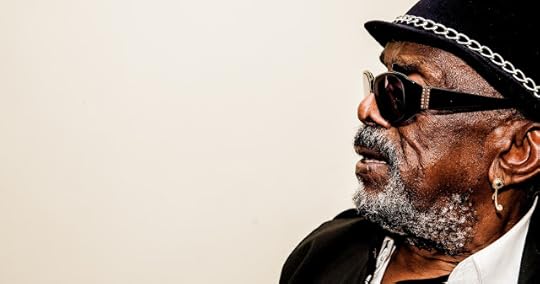 If I Ever Lose This Heaven: The Genius of Leon Ware-- a Playlistby Mark Anthony Neal | @NewBlackMan | NewBlackMan (in Exile)
If I Ever Lose This Heaven: The Genius of Leon Ware-- a Playlistby Mark Anthony Neal | @NewBlackMan | NewBlackMan (in Exile)“I’ve been saying for 30 years that sex should be a religion. Now I know it is a religion. It’s not should be, it has been. It’s a religion we’ve overlooked.” -- Leon Ware, quoted in Mercy, Mercy Me: The Art, Loves & Demons of Marvin Gaye (Michael Eric Dyson, 2004)
Much has been and can be written about the brilliance and legacy of singer songwriter Leon Ware, who died on on February 23, 2017, a week after his 77th birthday. Ware is best known for his collaborative relationship with Marvin Gaye, which produced the 1976 album I Want You, known as much for the unbridled sensuality of the project, as it was for the iconic Ernie Barnes painting “Sugar Shack,” which served as the album’s cover art. As Gaye biographer David Ritz told the New York Times recently, Ware and Gaye shared “an orchestral view of soul music” that was “very lush and harmonically complex.”
Yet I Want You was just one aspect of Ware’s influence, which spanned the early 1970s, well into the 2000s when his compositions were being sampled. While individual songs of note that bear Mr. Ware’s own vocals might be obscure -- he recorded 11 studio albums throughout his career, many of which were independently released -- his musical compositions represent an archive of sensual and sexually charged Jazz inflected Soul and Pop Soul music.
The thematic heft of Mr. Ware’s music was the by-product of the sexual revolution of the early 1970s, as emboldened by projects like Erica Jong’s Fear of Flying or even Mr. Gaye’s shift from singing about “What’s Going On?” to “Let’s Get It On.” On the surface such a focus might seem like a retreat from the very public demands for Black liberation that marked Soul and Jazz music in the late 1960s, but Black people generally, and Black men in particular, had few platforms until the 1970s to publically explore the complexities of sex and sexuality; indeed Mr. Ware’s music alongside the cinematic inventions like Sweet Sweetback's Baadasssss Song, Shaft and Superfly, might be read as pent-up excess.
Despite these seeming excesses -- thinking of women vocalists feigning aural orgasms on Mr. Gaye’s recordings or notably on the album version of Major Harris’s “Love Won’t Let Me Wait”-- Mr. Ware music conveyed a heightened sophistication, which in part explains his music’s longevity. Mr. Ware was aware of higher sense of purpose, as he told Michael Eric Dyson in the latter’s book, Mercy, Mercy Me: The Art, Loves & Demons of Marvin Gaye: “Now I realize -- with Marvin and myself, Barry White, Luther [Vandross], James Ingram, Jeffrey Osborne -- that all of us were ministers of love. Soldiers of love that are sending messages to the hearts that listen.” (2004, pp 174.)
Below is a brief playlist of some of Mr. Ware’s most endearing musical contributions:
“I Wanna Be Where You Are” (1972) -- Michael Jackson
A bouncy little gem from Michael Jackson’s first solo album Got Be There, that was co-written with Diana Ross’s little brother T-Boy Ross. Would later be featured on I Want You as an an impression of the original that found Gaye longing for his then wife Janice and their young children.
“If I Ever Lose This Heaven” (1974) -- Quincy Jones
Quincy Jones has long worked the edges of Jazz and Soul, but finally perfected the sound with 1974’s Body Heat. Not surprisingly Ware contributed to three of the album’s tracks including the title track, which features Ware on vocals, and “If I Ever Lose This Heaven” which also features Minnie Riperton and Al Jarreau on vocals.
“Inside My Love” (1975) -- Minnie Riperton
A year after Body Heat, Ware joined Riperton and her husband Richard Rudolph, in the creation of Adventures in Paradise, Riperton’s third studio album. “Inside My Love” set standard for after midnight Soul music -- the storm after the Quiet Storm, if you will, with the lasting impression of Ms. Riperton singing, “will you come inside me...do you wanna ride?”. Riperton would join Ware on a version “Come Live with Me Angel” from Musical Massage (1976) that is every bit the match of what Gaye recorded,
“I Know It’s You” (1973) -- Donny Hathaway
From Donny Hathaway’s chambery Extensions of a Man, “ I Know It’s You” stands out for its righteous restraint; one of Hathaway’s more accessible ballads and a reminder of what was lost when the madness took over.
“Lovers After All” (1981) -- Melissa Manchester + Peabo Bryson
Perhaps the most surprising song in Mr. Ware’s oeuvre, this pop duet between Melissa Manchester & Peabo Bryson (co-written by Ware and Manchester) anticipates pairings like R. Kelly and Celine Dion in the 1990s. One of Bryson’s more soulful performances and one that primed him for his crossover success with Roberta Flack two years later with “Tonight (I Celebrate)”.
“After the Dance” -- Marvin Gaye (1976)
From the days when intimacy was literally charted on the dancefloor, where the smells, the curves, the soft spots, the hot spots, were all figured out before the sex. Timeless enough that Fourplay -- Bob James, Lee Ritenour, Nathan East, and Harvey Mason -- could reimagine the song a generation later with El Debarge on vocals and not miss a caress.
“Shelter” -- Leon Ware(1982)
The sweetness of obscurity from the man himself.
Published on March 10, 2017 14:42
Sounds + Visuals -- Rhiannon Giddens: "Come Love Come"
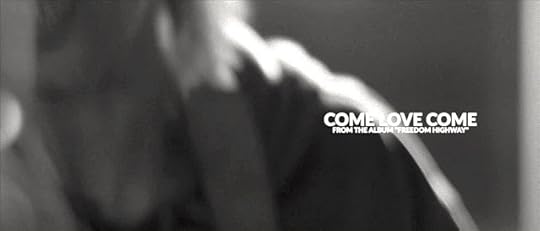 'Rhiannon Giddens performs her song "Come Love Come" from her 2017 album, Freedom Highway. Filmed at the Breaux Bridge, LA, studio of multi-instrumentalist Dirk Powell, with whom she co-produced the album.'
'Rhiannon Giddens performs her song "Come Love Come" from her 2017 album, Freedom Highway. Filmed at the Breaux Bridge, LA, studio of multi-instrumentalist Dirk Powell, with whom she co-produced the album.'
Published on March 10, 2017 06:08
Protecting Culture in Donald Trump’s America: Claudia Rankine + Salman Rushdie
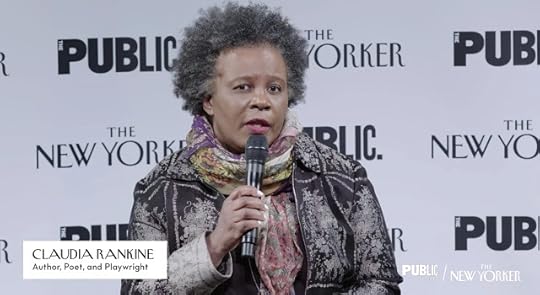 'In the first of an ongoing series of panel discussions called “Public Forum: A Well-Ordered Nation,” David Remnick speaks with Salman Rushdie, Tony Kushner, and Claudia Rankine about being guardians of culture in a new political era.' -- +The New Yorker
'In the first of an ongoing series of panel discussions called “Public Forum: A Well-Ordered Nation,” David Remnick speaks with Salman Rushdie, Tony Kushner, and Claudia Rankine about being guardians of culture in a new political era.' -- +The New Yorker
Published on March 10, 2017 05:53
Art Historian Darby English and Curator David Breslin in Conversation -- '1971: A Year in the Life of Color'
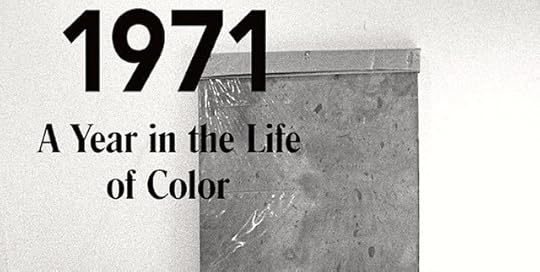 'Art historian Darby English speaks about his new book,
1971: A Year in the Life of Color
, with David Breslin, DeMartini Family Curator and Director of the Collection. 1971: A Year in the Life of Color explores two exhibitions that brought modernist painting and sculpture into the “burning heart” of United States cultural politics: Contemporary Black Artists in America, at the Whitney, and The DeLuxe Show, a racially integrated abstract art exhibition presented in a renovated movie theater in a Houston ghetto.' -- +Whitney Museum of American Art
'Art historian Darby English speaks about his new book,
1971: A Year in the Life of Color
, with David Breslin, DeMartini Family Curator and Director of the Collection. 1971: A Year in the Life of Color explores two exhibitions that brought modernist painting and sculpture into the “burning heart” of United States cultural politics: Contemporary Black Artists in America, at the Whitney, and The DeLuxe Show, a racially integrated abstract art exhibition presented in a renovated movie theater in a Houston ghetto.' -- +Whitney Museum of American Art
Published on March 10, 2017 05:38
Mark Anthony Neal's Blog
- Mark Anthony Neal's profile
- 30 followers
Mark Anthony Neal isn't a Goodreads Author
(yet),
but they
do have a blog,
so here are some recent posts imported from
their feed.



